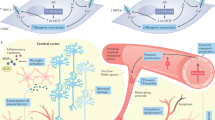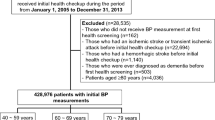Abstract
Ischaemic and degenerative brain diseases are a major health problem leading to a devastating loss of autonomy. Hypertension has been shown to carry an increased risk not only for cerebrovascular morbidity and mortality but also for cognitive impairment and dementia. Although diastolic blood pressure is considered an important risk factor, it is now clear that isolated systolic hypertension and elevated pulse pressure also play an important role in the development of brain complications. Therefore the treatment of these conditions must urgently become a widespread tool of prevention. All the randomised placebo-controlled trials completed for the last 30 years have shown a reduction in fatal and/or non-fatal strokes. In the most recent trials in isolated systolic hypertension in older patients, the benefit was even greater because of the higher risk in these populations. The new classes of drugs, in particular, calcium-channels blockers and angiotensin- converting enzyme inhibitors, have been shown to be as effective as the originally used diuretics and beta-blockers. Active treatment in the Syst-Eur trial based on nitrendipine as first step, possibly associated with enalapril and/or hydrochlorthiazide reduced not only stroke and cardiovascular complications but also the incidence of dementia including Alzheimer’s disease. This important finding must be confirmed by further trials specifically focusing on the prevention of dementia. In addition, the importance of pulse pressure as a risk factor, underlines the need for new drugs which could increase aortic distensibility and decrease systolic blood pressure without greatly reducing diastolic pressure. Improving the management of hypertension offers new opportunities to reduce age-related disease in older people and to promote healthy aging.
This is a preview of subscription content, access via your institution
Access options
Subscribe to this journal
Receive 12 digital issues and online access to articles
$119.00 per year
only $9.92 per issue
Buy this article
- Purchase on Springer Link
- Instant access to full article PDF
Prices may be subject to local taxes which are calculated during checkout
Similar content being viewed by others
Author information
Authors and Affiliations
Corresponding author
Rights and permissions
About this article
Cite this article
Rigaud, A., Seux, M., Staessen, J. et al. Cerebral complications of hypertension. J Hum Hypertens 14, 605–616 (2000). https://doi.org/10.1038/sj.jhh.1001118
Received:
Accepted:
Published:
Issue Date:
DOI: https://doi.org/10.1038/sj.jhh.1001118
Keywords
This article is cited by
-
Relationship Between Calcium Channel Blockers Therapy and Cognitive Function Improvement in Cognitive Decline Patients with Cerebrovascular Disease
High Blood Pressure & Cardiovascular Prevention (2022)
-
High plasma aldosterone concentration is a novel risk factor of cognitive impairment in patients with hypertension
Hypertension Research (2011)
-
Higher Blood Pressure Associated With Higher Cognition and Functionality Among Centenarians in Australia
American Journal of Hypertension (2011)
-
Interactions of Genetic Variants With Physical Activity Are Associated With Blood Pressure in Chinese: The GenSalt Study
American Journal of Hypertension (2011)



